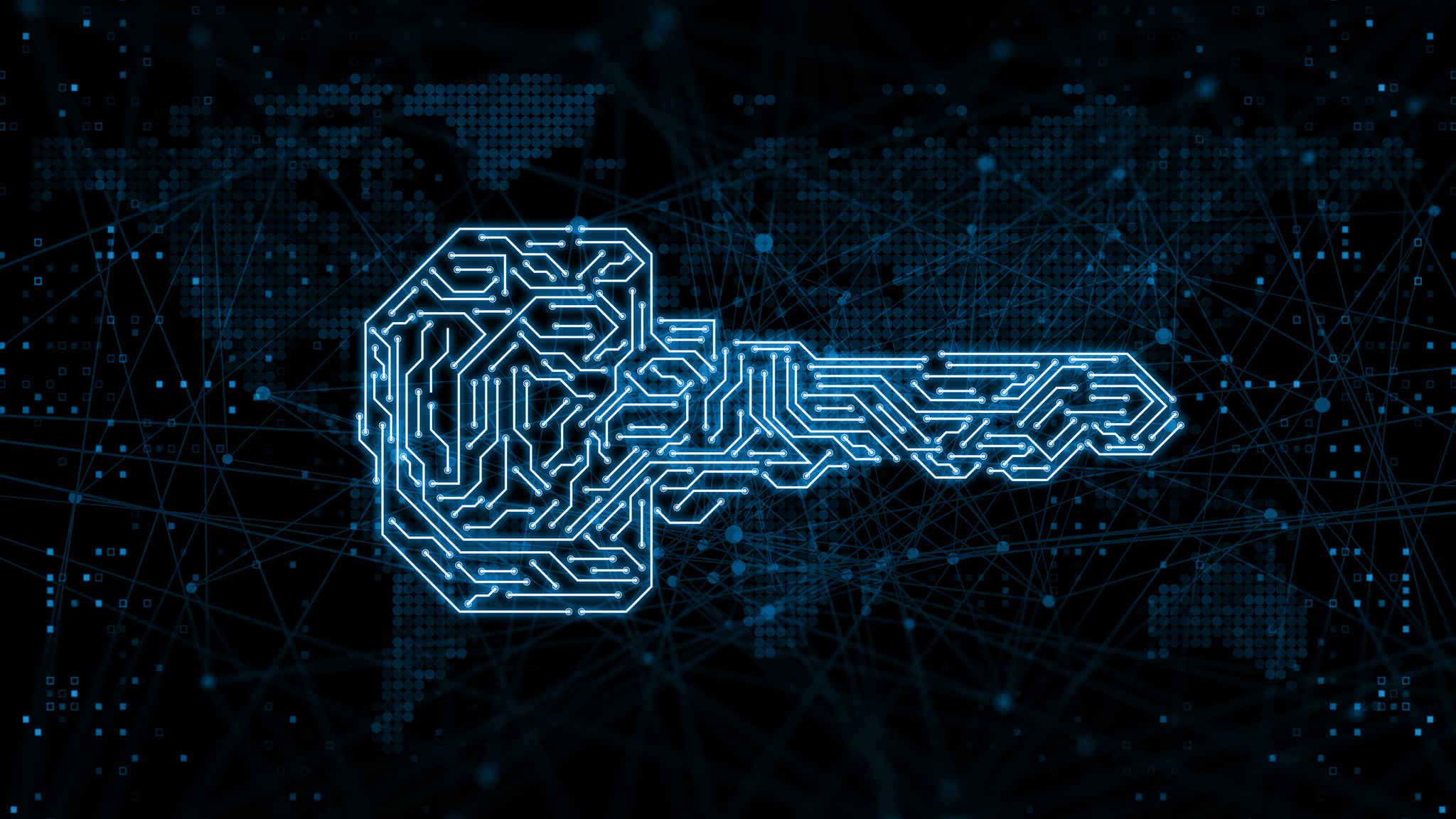Key escrow is a cryptographic system that allows a third party to hold encryption keys. It ensures access in case of emergencies or lost keys.
Introduction (153 words): Key escrow is a cryptographic system designed to address the challenges associated with encryption key management. In today’s digital landscape, data security is paramount, and encryption plays a crucial role in safeguarding sensitive information. However, situations may arise where access to encrypted data becomes necessary, such as during emergencies or when encryption keys are lost or compromised.
This is where key escrow comes into play. Key escrow involves the creation of multiple copies of encryption keys, with each key being securely stored by a trusted third party. These third parties are typically known as key escrow agents or key recovery agents. The concept behind key escrow is to strike a balance between security and access. While encryption keys are normally only accessible to the authorized parties, the existence of key escrow ensures that, under certain circumstances, access can be granted to encrypted data. It is important to note that the key escrow process is based on strong cryptographic algorithms to guarantee the confidentiality of the stored keys. The keys are themselves encrypted before being handed over to the key escrow agent, ensuring that they cannot be accessed without the necessary authorization.
Table of Contents
What Is Key Escrow?
Key Escrow is a mechanism that involves the secure storage of encryption keys. It ensures that a trusted third party holds a copy of the encryption key used by the communicating parties. This allows the government or any authorized entity to gain access to encrypted data when necessary.
Key Escrow plays a crucial role in encryption, as it ensures that access to encrypted information can be granted under certain circumstances. It provides a balance between privacy and lawful access to information. In the context of cybersecurity, Key Escrow enables the authorities to decrypt data for legitimate purposes without compromising the overall security of encryption.
This mechanism has been a topic of debate and controversy due to concerns about privacy and potential abuses of power. However, it remains an essential element in maintaining a delicate balance between protection and accessibility of digital information.

Credit: utimaco.com
Key Players In Key Escrow
Key escrow involves various key players, such as government agencies and technology companies. The government agencies play a crucial role in implementing regulations related to key escrow. They establish rules and guidelines to ensure the proper management of cryptographic keys.
Technology companies, on the other hand, are actively involved in providing solutions and technologies for key escrow. They develop encryption algorithms and secure key management systems to meet the requirements set by the government. These companies play a significant role in the design, development, and implementation phases of key escrow systems.
Their expertise and contributions are essential to ensure the secure and effective functioning of key escrow mechanisms. Both government agencies and technology companies work hand in hand to enable successful key escrow implementations.
Pros And Cons Of Key Escrow
Key escrow is a system that has its advantages and disadvantages. On the positive side, key escrow provides a sense of security by allowing authorized access to encrypted data when necessary. This can be particularly useful in situations where access is crucial for legal or regulatory purposes.
Additionally, key escrow offers a way to recover lost or forgotten encryption keys, preventing potential data loss. However, there are concerns associated with key escrow as well. The main concern revolves around the potential for abuse and misuse of the escrowed keys, as unauthorized access can compromise the security and confidentiality of sensitive information.
These concerns highlight the need for careful implementation and strict control measures when utilizing key escrow systems. It is essential to weigh the pros and cons to determine if this solution is suitable for your specific needs.
How Key Escrow Works
Key escrow is a process that involves the secure storage of encryption keys. It ensures access to encrypted data, even if the original key is lost or unavailable. The implementation of key escrow follows a step-by-step process. Firstly, encryption algorithms are chosen to secure the data.
Then, a key generation process creates the encryption keys. These keys are then securely stored with a trusted third party, known as the escrow agent. In the event that the original key is lost, the escrow agent can retrieve the encrypted data using the stored keys.
This system provides an extra layer of security by allowing authorized access to the data, while also protecting it from unauthorized individuals. Overall, key escrow plays a crucial role in safeguarding encrypted information and ensuring its availability when needed.
Legal And Ethical Challenges
Key escrow poses legal and ethical challenges due to privacy concerns and potential breaches of individual rights. It also has an impact on cybersecurity and the risk of data breaches. The controversial practice of key escrow, where encryption keys are held by a third party, raises questions about personal privacy and the potential for misuse of sensitive information.
Advocates argue that it enables law enforcement access to encrypted data for criminal investigations, while opponents highlight the potential for abuse and violation of individual rights. Additionally, the practice introduces cybersecurity risks as a central authority becomes a target for hackers seeking to access encrypted data.
In this evolving digital landscape, finding a balance between protecting privacy and ensuring public safety remains a pressing challenge.
Key Escrow In Practice: Case Studies
Key escrow, a controversial practice, has been implemented in various countries with mixed results. Analyzing these implementations, we can learn from both successes and failures. For instance, in Country A, key escrow was successfully introduced to ensure access to encrypted communications for law enforcement purposes.
However, in Country B, the implementation faced significant challenges due to privacy concerns and lack of trust. Understanding the lessons from these case studies is crucial in shaping future key escrow policies. It is evident that a delicate balance must be struck between security and privacy to gain public acceptance.
By exploring the nuances of key escrow in different countries, we can develop a deeper understanding of its implications and work towards more effective implementations, safeguarding both security and privacy interests.
Evolution Of Key Escrow Technologies
Key escrow has evolved over time with advancements in technology. One such advancement is the integration of blockchain and decentralization. These innovations have revolutionized the way key escrow systems function and provide added security. The use of blockchain technology ensures transparency and immutability of stored information, making it difficult for unauthorized parties to manipulate the stored keys.
Decentralization, on the other hand, eliminates the need for a central authority, distributing the responsibility and power among multiple nodes. This further enhances the security of key escrow systems as it becomes more difficult for any single entity to gain control over the stored keys.
With these advancements, key escrow systems have become more robust and reliable in safeguarding sensitive information and ensuring its accessibility only to authorized individuals.
Alternatives To Key Escrow
Alternatives to Key Escrow include dual key encryption, which offers various benefits. With this method, two separate keys are used for encryption and decryption. One key encrypts the data, while the other key decrypts it, providing an added layer of security.
This approach ensures that even if one key is compromised, the data remains protected. Moreover, dual key encryption can be implemented in various ways, such as symmetric and asymmetric encryption. For symmetric encryption, the same key is used for both encryption and decryption, ideal for secure communication between two parties.
In contrast, asymmetric encryption involves a public key for encryption and a private key for decryption, making it suitable for secure communications across networks. By overviewing these alternative encryption methods, businesses can enhance their data security and protect sensitive information.
Implications For The Future
Key escrow has profound implications for the future of security and privacy. Experts have made various predictions regarding its evolution. Some anticipate that key escrow will become more prevalent as governments seek to access encrypted data. Others believe that advancements in encryption technology will render key escrow obsolete.
Additionally, concerns about potential abuses of power and breaches of privacy have fueled debates surrounding key escrow. Moreover, international cooperation and agreements will play a vital role in shaping the future of this practice. As we navigate an increasingly interconnected world, finding the right balance between security and privacy becomes even more crucial.
The implications of key escrow weigh heavily on individuals, businesses, and governments alike. By analyzing the trends and developments in this area, we can better prepare ourselves for the challenges and opportunities that lie ahead.
Frequently Asked Questions For Key Escrow
What Is Key Escrow Service?
Key escrow service is a method where a trusted third party holds encryption keys for accessing encrypted data.
What Are The Benefits Of Key Escrow?
Key escrow has several benefits, such as ensuring access to encrypted data and facilitating law enforcement investigations.
What Is The Difference Between Key Escrow And Recovery Agent?
Key escrow and recovery agent are two different concepts. Key escrow involves storing encryption keys with a trusted third party. A recovery agent, on the other hand, helps recover lost or forgotten encryption keys.
What Is The Primary Logic And Elements Of The Concept Of Key Escrow?
Key escrow is a concept where a trusted third party holds encryption keys for data security.
Conclusion
Key Escrow is a controversial security measure that has its pros and cons. While it provides a way for authorities and government agencies to access encrypted data for legitimate reasons, it also raises concerns about potential misuse and infringement on privacy rights.
The concept of Key Escrow has been debated among tech experts, policymakers, and the general public, with arguments focusing on the balance between security and privacy. It is clear that there is no one-size-fits-all solution, as each country and organization must carefully evaluate the trade-offs and implement appropriate policies.
As technology continues to advance, it is crucial for ongoing discussions and collaborations to ensure that the implementation of Key Escrow is done responsibly and ethically, taking into account the interests of all stakeholders. Ultimately, it is our collective responsibility to navigate this complex landscape and protect both our privacy and security in a rapidly evolving digital world.
